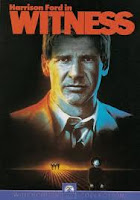There is an episode on Dr Quinn Medicine Woman in Season 3 titled "Washita". The episode educates viewers on the conflict between the Cheyenne Indians and US expansion (White Soldiers). The show does a good job in general of providing perspectives to bridge understanding of cultures, but this episode in particular was very intense and saddening to realize the degree of ignorance and injustice in our history's past.
The term "Dog Soldiers" refer to the Indians who were "rebels", "extremists", or "fighters" for their people and customs. The "Dog Soldiers" are accepted by the other, traditionally peaceful, Indians only because their raids and killing of Whites provided them with food and survival. The US Army is called into the scene because of the outbreak of "Dog Soldier" raids. The scene clips are in 10 minute segments, but in this first video the important dialogues occur between the beginning until the 5 minute mark.
It is interesting to relate dialogue heard in this show from the 1990's (but set back in the mid to late 1800's) to the events and happenings of our world today. For instance, can you imagine the use of a phrase similar to "they can all burn in hell", as said by the injured railroad worker in the opening scene of the clip? Then you have the propaganda-like comment by General Custer quoted as "enemies to our civilization".
After viewing the complete episode, Jenny turned to me and said "and the sad thing is it's true". The killings did take place by both sides; and both sides were looking to protect their way of life. And still today people live different "ways" of life, so were those killings worth it? Nobody is ever going to be the same, so why do we seem to expect to be able to change the way someone lives (or think everyone should live like us?) And more so, are unnecessary killings still occuring today due to our way of life differences? Where are the active "Dr Quinns and Sullys" of our culture (ie seeking to bring all sides together)?
You can begin your own research on the history of Washita by clicking this Wikipedia Link
If interested, you can own your own seasons of the Dr Quinn show by clicking this Amazon Link


 On Friday, David and I went to a traveling mural project based on the war in Afghanistan. It's called
On Friday, David and I went to a traveling mural project based on the war in Afghanistan. It's called 